Session Description
Teaching as an Artform: Redefining Community in the classroom. The Community of Inquiry model (Garrison, 2017) underscores the notion that the educator/instructor plays a key role in creating connections with learners, which leads to long term retention. The Community of Inquiry framework represents the model for teaching to create a deep and meaningful learning experience through the development of social, cognitive, and teaching presence (Garrison, 2017). That said, this presentation will provide some experiences relating to how we, as educators, have applied innovative techniques to help facilitate relationships that support an inclusive learning space, while challenging participants to share some of their best practices. Participants will ponder teaching and learning in a constant state of mindful choices with evaluation and reflection as a means toward constant improvement.
Presenter(s)
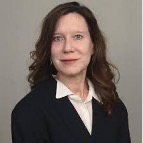 Carolyn Stevenson
Carolyn Stevenson
Purdue University Global
Dr. Carolyn Stevenson is currently a full-time faculty member and faculty advisor for Purdue University Global, School of General Education, Department of Humanities and Social Sciences. She completed her Ed.D. from Roosevelt University, M.B.A. from Kaplan University, M.A. in Communications from Governor’s State University and B.A. in English from Northern Illinois University. She has been cited for her expertise in online learning, qualitative research, open educational resources, and prior learning. She is also a regular reviewer for conference papers and textbooks and has served on various offices and committees for the American Education Research Association. Carolyn has over 23 years teaching and administrative experience in higher education at both the undergraduate and graduate level. She has published texts on technical communication, building online communities, open educational resources, and environmental education.
Betsy Daniels
Purdue Global University
Elizabeth (Betsy) Daniels is an adjunct faculty member and faculty advisor at Purdue University Global. Betsy served on the Purdue Institutional Review Board and University Assessment Advisory Committee. Betsy has collaborated on multiple internal and external presentations on adult learning, student success, and experiential learning. She earned a Master of Arts in Teaching from the University of Michigan and a bachelor’s degree from Western Michigan University with a double major in political science and communications. Betsy is certified in Secondary Education and has facilitated courses at multiple Universities. Before moving to education, Betsy was the senior manager of marketing, programming, and community relations for the Midwest region of AT&T Broadband.
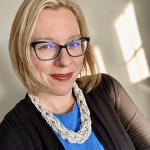 Erin Berman
Erin Berman
Purdue University Global
Erin M. Berman holds advanced degrees in both communication and instructional design and has been working in higher education for more than sixteen years as both an instructor and an instructional designer. She demonstrates the ability to blend research from the learning sciences with student-facing application to create an enriching and equitable learning experience. Erin continues to research the positive impacts of mindful approaches to fostering inclusive learning communities, while volunteering locally with her community primary schools to support their online and virtual classroom missions during the pandemic. As a fun fact, she and her family live in the Blue Ridge Mountains of VA and foster farm animals in support of the local ASPCA.
Suzanne Atkin
Purdue University Global
Suzanne Atkin's education started on the job including at organizations as diverse as the World Bank, the Department of Defense, and high tech companies. She is also owner of Workplace Harmony, a training and consulting firm. As an executive secretary, she became aware of communication and how it can be less or more effective. After returning to higher education as an adult learner, she earned two Bachelor of Science degrees: in Social Science and Communication Studies. After earning her MS in Communication Studies, she now teaches in the social sciences for several universities. Her interests include the change process, identity, relationships, and communicating in the digital age.

 Ellen Cohn
Ellen Cohn Glen Jenewein
Glen Jenewein Marjorie Furay
Marjorie Furay Barth Baron
Barth Baron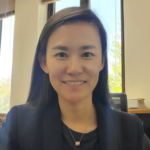 Seungoh Paek
Seungoh Paek Daniel Hoffman
Daniel Hoffman Tamara Fudge
Tamara Fudge Eric Holmes
Eric Holmes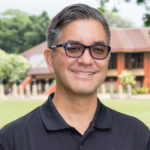 Sheldon Tawata
Sheldon Tawata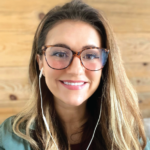 Jamie Sickel
Jamie Sickel Youxin Zhang
Youxin Zhang Simon Ringsmuth
Simon Ringsmuth Bea Bourne
Bea Bourne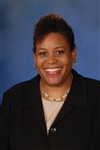 Carol T. Edwards
Carol T. Edwards